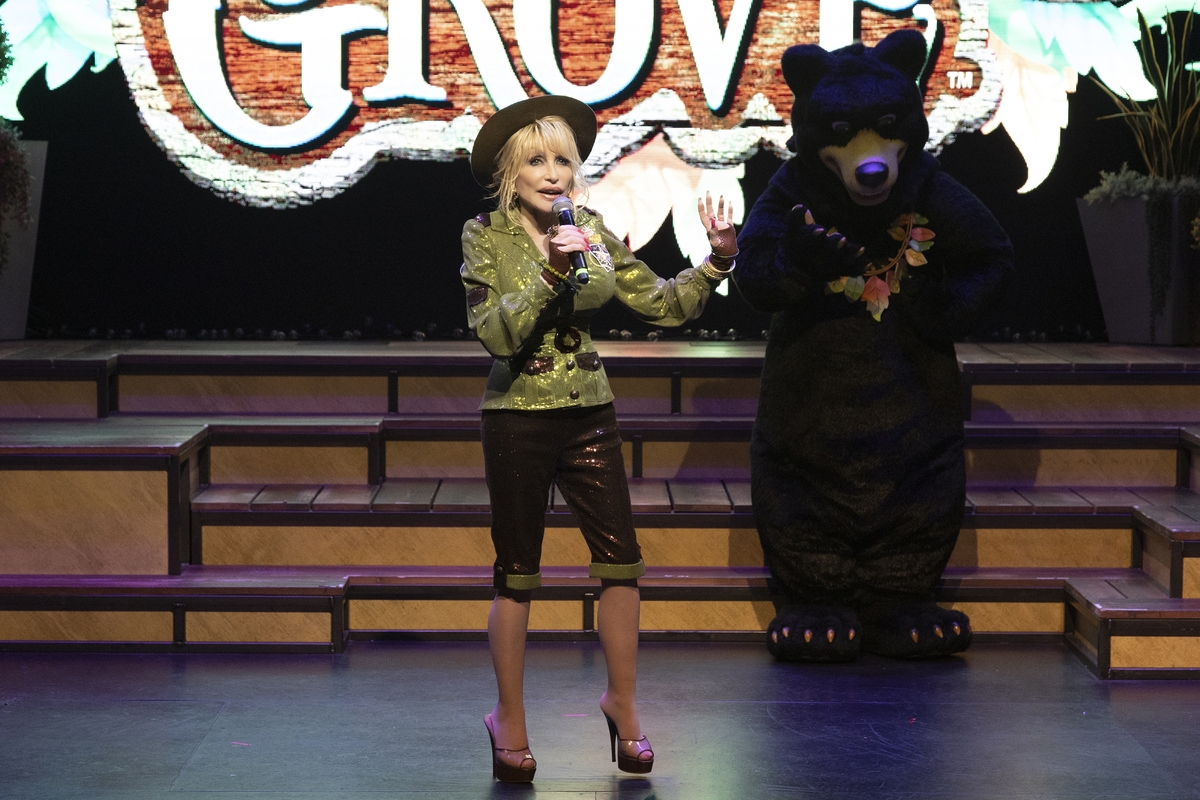Skift Take
Travel companies — especially destination marketing organizations — need to heed lessons from the innovative approach at Dolly Parton's Dollywood on how to make employees feel valued. That's critical in attracting workers back to an industry still plagued by labor shortages.

For our Viewpoint series, Skift invites thought leaders, some from the less obvious corners of travel, to join in the conversation. We know that these independent voices are important to the dialogue within the industry. Our guest columnists will identify and shape what global trends and through lines will define the future of travel.
The numbers are bleak. Almost half of the jobs in the U.S. leisure and hospitality industry disappeared between February 2020 and April 2020. Even with encouraging news from the latest jobs report, the sector has 2 million job openings. The U.S. Travel Association reported that 39 percent of the total jobs lost due the pandemic were in the leisure & hospitality industry, with the food and accommodation sectors being hit the hardest.
The rationale for leaving tourism is unsurprising. Millions have shed a lack of job security and uncertain future for more consistent hours, better pay and generally healthier environments.
Emotional benefits come into play as well especially as workers increasingly believe it’s important they feel valued by their employers. Many departures ultimately come down to employees feeling that their work can be better compensated or more valued elsewhere.
Characterized in that way, many industries and companies that are still struggling to bring visitors back can feel hopeless. Helpless. Compensated and valued are often narrowly defined as “Pay me more,” and when too few customers are coming in the front door, increasing pay becomes quite challenging for many companies.
So while there’s a great argument for paying people more, how people want to be compensated or valued depends on more factors than just the weekly paycheck. The Boston Consulting Group said, upon conducting a survey last year about hospitality’s staffing issues, that the hotel industry could solve its labor challenges by creating more paths for workers to ascend the corporate ladder, among other steps.
Like so many things, people make employment decisions based on practical factors and also emotional ones. Do I feel respected, heard and seen? Does my employer have my best interests at heart or are they only out for themselves? If advancement is important to me, how are they building that into career growth and development? If bettering myself is of value, what are they doing to create that kind of culture?
What Dolly Parton Got Right
Which is why what Dolly Parton did last year blew me and many in the attractions world away.
She and parent company Herschend Family Entertainment announced that Dollywood would pay the full tuition — as well as any additional fees and books — for its 11,000 seasonal, part- and full-time employees who choose to pursue higher education. There was no expectation that they would attend hospitality classes or attain a hospitality degree. Employees’ education would be covered regardless of what major they chose.
The move was intended to show staff that they were both compensated and valued. “When our hosts feel appreciated and are given opportunities like this, they feel cared for and they can pass that feeling on to their guests,” said Dollywood spokesman Wes Ramey.
The return on the investment in their employees’ health and well-being? TripAdvisor selected Dollywood as the best theme park in North America, above both Disneyland and Universal. The reasons go far beyond the cleanliness and maintenance of the facilities. They include the warmth and friendliness of its employees, which starts with Dolly herself.
So what’s the lesson for destination marketers? What can hospitality industry leaders learn from Dolly? Listen and respond to the deep need.
Another very famous American innovator, Henry Ford, is famously quoted as saying, “If I gave people what they asked for, I would’ve given them faster horses.” It was his way of expressing that he was listening more deeply to their needs rather than what they were capable of stating on the surface — and then providing them something they didn’t have the language to ask for.
As mentioned earlier, wanting to be compensated and valued often means better pay, but like faster horses, it goes much deeper than that. Dolly adopted the principles of Ford’s quote and, instead of simply paying people better, solved a bigger issue, one that virtually every business and destination in the hospitality industry is trying to solve.
To be clear, for all the destinations that have common traits, the solutions required to solve similar challenges often vary from place to place. College tuition might work in certain destinations but others might require that same kind of thinking around challenges like child care, transportation and affordable housing.
But in the case of tuition, just imagine the headlines that would come from scenarios such as Chicago offering college grants to service workers or California announcing a tuition program for hospitality workers. Think about how that effort not only solves the very immediate challenge of filling staffing shortages, but also how it could help change long-term perception of the destination.
The question to me is who will be the first destination marketing organization to work with industry partners, stakeholders and local colleges and universities and do what Dolly did on a different scale? And who will be the first to adapt it to their particular destination as a way to make hospitality workers feel valued and appreciated versus taken for granted? They have felt that way for far too long in an industry that relies so heavily on them.
When hospitality workers feel valued and appreciated, that feeling is more likely to be passed on to the guests, who feel more welcomed and more well taken care of. In a dramatically-changed marketing landscape, the value of a move like that would be far-reaching and life-changing for all involved.
Finally, I’m quite proud of the fact that I made it all the way through this article without quoting any Dolly Parton lyrics, so please allow me to finish with some lines from her hit 9 to 5 that sum up the plight of many hospitality sector workers …
They let you dream just to watch ’em shatter
You’re just a step on the boss man’s ladder
But you’ve got dreams he’ll never take away
In the same boat with a lot of your friends
Waitin’ for the day your ship’ll come in
And the tide’s gonna turn an’ it’s all gonna roll your way
Matt Stiker is a longtime destination marketing specialist who has held positions at CityPASS and the San Francisco Travel Association. He now consults destination marketing organizations including Visit Seattle and Visit California.
The Daily Newsletter
Our daily coverage of the global travel industry. Written by editors and analysts from across Skift’s brands.
Have a confidential tip for Skift? Get in touch
Tags: employees, employment, hiring, jobs, labor, theme parks, viewpoint
Photo credit: Dolly Parton announcing the addition of Dollywood’s newest roller coaster, Big Bear Mountain, at DreamSong Theater at Dollywood on August 5, 2022, Curtis Hilbun / Dollywood
